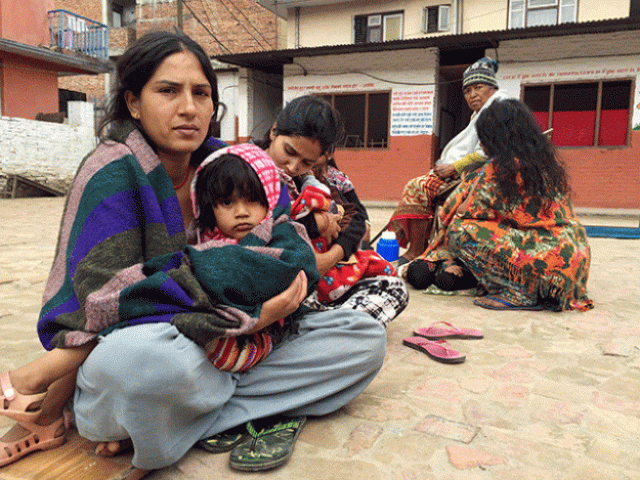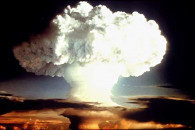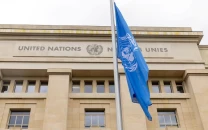Quake aid supplies stuck at Nepal customs: UN
Monsoons will exacerbate the situation in every respect

PHOTO: REUTERS
The landlocked Himalayan nation needs around $6.7 billion to recover from the disaster that killed more than 8,800 people, destroyed nearly half a million houses and left thousands in need of food, clean water and shelter.
Read: Dozens dead as new quake hits shattered Nepal
Nepal's government has faced steady criticism for holding up foreign relief deliveries since a 7.8 magnitude quake struck on April 25, despite Kathmandu signing a 2007 agreement with the UN that guarantees faster customs clearance for humanitarian aid in the event of a disaster.
"The sense of urgency cannot be overstated, we can't afford administrative, bureaucratic delays," said John Ging, the director of operations for the UN Office for the Coordination of Humanitarian Affairs.
"Monsoons will exacerbate the situation in every respect, speed is of the essence, we have got to mobilise as fast as we can in this period," Ging told AFP during an interview in Kathmandu.
The delivery of aid to remote mountainous villages is expected to suffer a serious blow as monsoon rains move across the country amid fears they will trigger landslides and cause further damage to quake-hit roads.
The UN says some 2.8 million people still require humanitarian aid, including access to food, sanitation and medical care, with its initial $422 million emergency appeal only generating $168 million in funding.
Read: India pledges $1 billion quake aid to Nepal
UN officials have asked the government to streamline customs procedures in a bid to convince donors to contribute more to the relief effort, Ging said.
"Everybody who is donating money from abroad wants to make sure that the money gets to the people that are affected, they don't want to hear that supplies are stuck in warehouses in the capital because of some bureaucratic customs procedure," he said.
"We want to speed up (funding) but that means speeding up the administration here as well."
In addition to humanitarian aid, Nepal, one of the world's poorest countries even before the disaster, also needs assistance to rebuild damaged or destroyed homes, schools and hospitals.
The government wants reconstruction funds to be channelled through a new state body, raising concerns among some donors that bureaucracy and poor planning will hamper rebuilding.
International donors, led by neighbouring India and China, last week pledged $4.4 billion to help rebuild the country.



















COMMENTS
Comments are moderated and generally will be posted if they are on-topic and not abusive.
For more information, please see our Comments FAQ